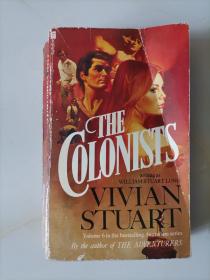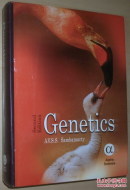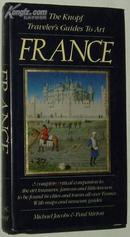
英文原版书 The Gang That Wouldn\'t Write Straight 精装本
¥ 80 九品
仅1件
作者Marc Weingarten
出版社不详
ISBN9781400049141
出版时间2005
页数336页
货号hw62
上书时间2012-03-17
- 在售商品 暂无
- 平均发货时间 11小时
- 好评率 暂无
- 店主推荐
- 最新上架
商品详情
- 品相描述:九品
- 商品描述
- 9成新,有个别铅笔勾画The Gang That Wouldn\'t Write Straight: Wolfe, Thompson, Didion, and the New Journalism Revolution [Hardcover] Marc WeingartenPublisher: Crown; 1St Edition edition (November 15, 2005) Language: English Product Dimensions: 9.1 x 6.2 x 1.3 inches Shipping Weight: 1.2 pounds Book DescriptionPublication Date: November 15, 2005. . . In Cold Blood, The Electric Kool-Aid Acid Test, Fear and Loathing in Las Vegas, Slouching Towards Bethlehem, The Armies of the Night . . .Starting in 1965 and spanning a ten-year period, a group of writers including Tom Wolfe, Jimmy Breslin, Gay Talese, Hunter S. Thompson, Joan Didion, John Sack, and Michael Herr emerged and joined a few of their pioneering elders, including Truman Capote and Norman Mailer, to remake American letters. The perfect chroniclers of an age of frenzied cultural change, they were blessed with the insight that traditional tools of reporting would prove inadequate to tell the story of a nation manically hopscotching from hope to doom and back again—from war to rock, assassination to drugs, hippies to Yippies, Kennedy to the dark lord Nixon. Traditional just-the-facts reporting simply couldn’t provide a neat and symmetrical order to this chaos.Marc Weingarten has interviewed many of the major players to provide a startling behind-the-scenes account of the rise and fall of the most revolutionary literary outpouring of the postwar era, set against the backdrop of some of the most turbulent—and significant—years in contemporary American life. These are the stories behind those stories, from Tom Wolfe’s white-suited adventures in the counterculture to Hunter S. Thompson’s drug-addled invention of gonzo to Michael Herr’s redefinition of war reporting in the hell of Vietnam. Weingarten also tells the deeper backstory, recounting the rich and surprising history of the editors and the magazines who made the movement possible, notably the three greatest editors of the era—Harold Hayes at Esquire, Clay Felker at New York, and Jann Wenner at Rolling Stone. And finally Weingarten takes us through the demise of the New Journalists, a tragedy of hubris, miscalculation, and corporate menacing.This is the story of perhaps the last great good time in American journalism, a time when writers didn’t just cover stories but immersed themselves in them, and when journalism didn’t just report America but reshaped it.“Within a seven-year period, a group of writers emerged, seemingly out of nowhere—Tom Wolfe, Jimmy Breslin, Gay Talese, Hunter S. Thompson, Joan Didion, John Sack, Michael Herr—to impose some order on all of this American mayhem, each in his or her own distinctive manner (a few old hands, like Truman Capote and Norman Mailer, chipped in, as well). They came to tell us stories about ourselves in ways that we couldn’t, stories about the way life was being lived in the sixties and seventies and what it all meant to us. The stakes were high; deep fissures were rending the social fabric, the world was out of order. So they became our master explainers, our town criers, even our moral conscience—the New Journalists.” —from the IntroductionFrom BooklistWeingarten captures the verve--and the nerve--it took to create and sustain new journalism from its breeding grounds at the Herald Tribune and Esquire to the assortment of writers and editors, including Clay Felker, Tom Wolfe, Norman Mailer, Truman Capote, and Hunter S. Thompson. He details the careers of these now famous writers as they tested the boundaries of conventional journalism, forever changing the way news and cultural trends are reported. Thompson\'s new journalism approach to the Nixon reelection bid was a refreshing change from more conventional coverage, while John Sack\'s Vietnam reports provided the first real look at the war in 1967 and severely departed from the World War II coverage, which emphasized heroism at the expense of realism. Weingarten also details the personal demons and vanities of these writers, the alcoholism and drug abuse of some, and the personal foibles of others. By placing these journalists in the broader historical context of advocacy journalism and the turbulent times in which they wrote, Weingarten provides a perspective on how journalism has changed. Vanessa BushCopyright ? American Library Association. All rights reserved
相关推荐
-

The,英文原版书
九品平顶山
¥ 20.00
-

The Cartomancer (英文原版书)
八品新余
¥ 12.00
-

The Alchemist 英文原版书
九品上海
¥ 20.00
-

THE LGLOO【英文原版书】
九品北京
¥ 118.00
-

the Colonists (英文原版书)
八品北京
¥ 46.00
-

英文原版书THE BROKER
八五品北京
¥ 40.00
-

英文原版书 the hawaiians
九品上海
¥ 80.00
-

英文原版书 The Giver
九五品上海
¥ 30.00
-

英文原版书 the cataclysm
七五品上海
¥ 5.00
-

英文原版书 THE HILIPPINES
九品上海
¥ 45.00
— 没有更多了 —

















以下为对购买帮助不大的评价